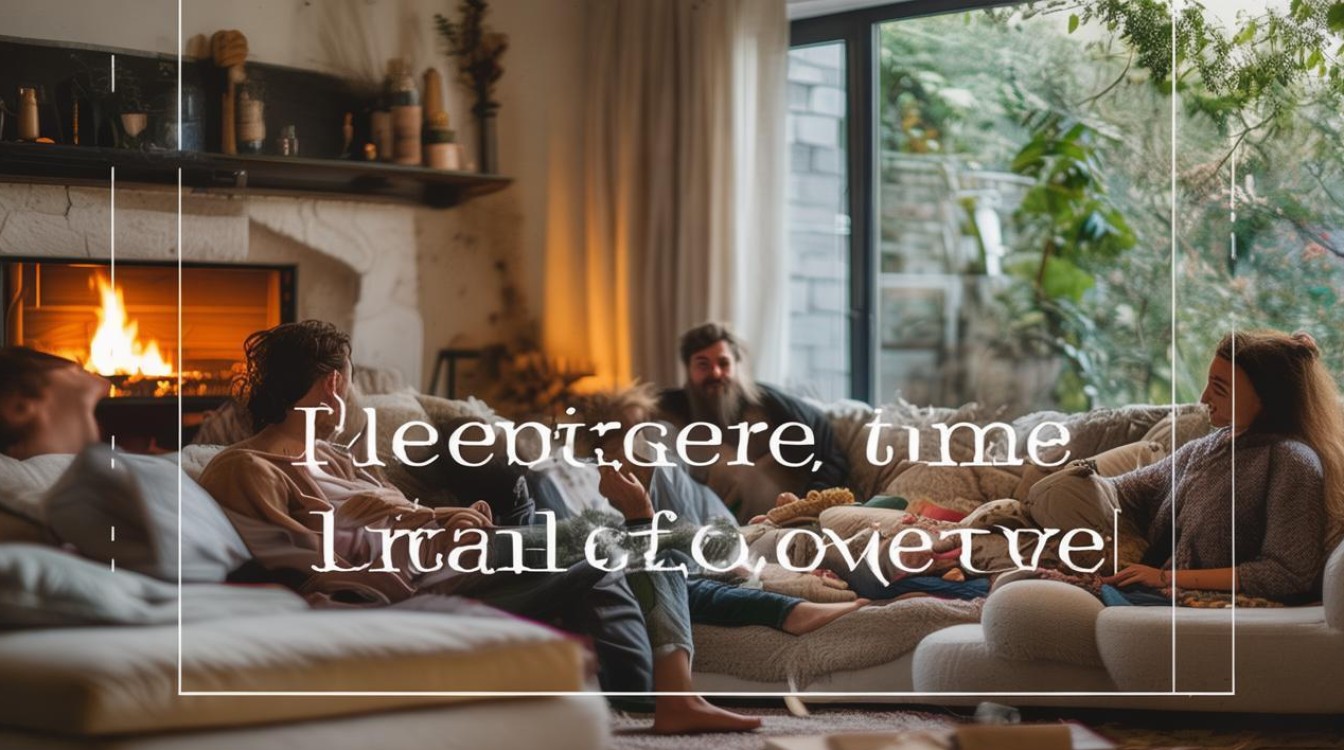"Leisure time" 指的是业余时间、闲暇时间,也就是工作、学习、家务等必要活动之外,完全由自己支配的时间,这是英语日常对话中一个非常高频且实用的话题。

下面我将从核心词汇、实用句型、情景对话、文化差异四个方面,帮你彻底掌握这个话题。
Part 1: 核心词汇与表达
除了 "leisure time",还有很多相关的说法,可以让你的表达更地道、更丰富。
核心名词:
- Leisure time / Free time: 最直接、最通用的说法。
- "What do you usually do in your leisure time?" (你平时业余时间都做什么?)
- Downtime: 休息时间,特指放松、恢复精力的时间,感觉比 "leisure time" 更轻松。
- "I need some downtime after a long week." (经过漫长的一周,我需要一些休息时间。)
- Hobbies: 爱好,特指那些你花时间投入的、为了乐趣的活动。
- "My main hobby is photography." (我的主要爱好是摄影。)
- Pastimes: 消遣,娱乐活动,和 "hobbies" 意思相近,但更偏向于打发时间。
- "Reading is a favorite pastime for many people." (阅读是许多人的最爱消遣。)
相关动词短语:
- Unwind / Chill out / Relax: 放松,解压。
- "I like to unwind by listening to music." (我喜欢通过听音乐来放松。)
- "Let's just chill out at home tonight." (今晚我们就在家放松吧。)
- Hang out (with friends): (和朋友) 一起玩,闲逛。
- "I'm hanging out with my friends this weekend." (我这周末要和朋友一起玩。)
- Catch up on (something): 补上(某事),通常指补剧、补觉、补工作。
- "I'm going to catch up on my favorite TV show." (我要去追我最爱的电视剧了。)
- Get away from it all: 暂时逃离一切烦恼,去度假。
- "A beach vacation is a great way to get away from it all." (海滩度假是暂时逃离一切烦恼的好方法。)
- Take up (a hobby): 开始从事(一项爱好)。
- "I want to take up painting." (我想开始学画画。)
Part 2: 实用句型与话题展开
当你和别人聊 "leisure time" 时,可以围绕以下几个角度展开,让你的对话更有深度。
询问对方的闲暇活动:
- "How do you usually spend your free time?" (你通常怎么度过你的空闲时间?)
- "What do you like to do to unwind after work/school?" (下班/放学后你喜欢做什么来放松?)
- "Are you into any hobbies right now?" (你现在有什么爱好吗?)
- "Do you prefer staying in or going out on weekends?" (你周末喜欢宅着还是出门?)
描述自己的活动:
- "I'm a big fan of..." (我是...的忠实粉丝。)
- "I'm a big fan of hiking on weekends." (我周末很喜欢远足。)
- "I really enjoy..." (我真的很喜欢...)
- "I really enjoy cooking as a way to relax." (我真的很享受把烹饪作为一种放松方式。)
- "Lately, I've been getting into..." (最近我迷上了...)
- "Lately, I've been getting into yoga." (最近我迷上了瑜伽。)
- "I'm not really into..." (我对...不太感兴趣。)
- "I'm not really into clubbing." (我对去俱乐部不太感兴趣。)
表达偏好与原因:
- "I prefer being active to being a couch potato." (比起当个沙发土豆,我更喜欢活动。)
- "I find it really therapeutic." (我觉得这很有疗愈效果。)
- "It's a great way to de-stress." (这是减压的好方法。)
- "It helps me switch off from work." (它能帮我从工作中抽离出来。)
Part 3: 情景对话示例
这里有两个不同场景的对话,你可以感受一下自然的交流方式。
新同事聊天 (Small Talk with a New Colleague)
A: Hey, do you have any fun plans for the weekend? (嘿,周末有什么好玩儿的计划吗?)
B: Not much, probably just relax. How about you? (没什么,可能就放松一下,你呢?)
A: I'm thinking of going for a hike. It's a great way to get away from it all after a busy week. What do you usually do to unwind? (我在想去远足,这是在忙碌一周后逃离一切的好方法,你通常怎么放松?)
B: Oh, I usually hang out with friends or chill out at home, maybe binge-watch a show. I'm not really into strenuous activities. (哦,我通常和朋友一起玩或者在家放松,可能会一口气看完一整部剧,我不太喜欢剧烈运动。)
A: That sounds nice too. Everyone needs downtime. Maybe you should take up a new hobby, like painting or photography? (那听起来也不错,每个人都需要休息时间,也许你可以尝试一项新爱好,比如画画或者摄影?)
B: That's a good idea! I've always wanted to learn how to play the guitar. (好主意!我一直想学弹吉他。)
和朋友讨论假期 (Discussing a Vacation with a Friend)
A: I'm so tired. I really need a vacation to unwind. (我好累,我真的需要个假期来放松一下。)
B: I know, right? We should plan a trip to get away from it all. What kind of leisure activities do you enjoy? (可不是嘛!我们应该计划一次旅行,逃离这一切,你喜欢什么样的休闲活动?)
A: I love being outdoors. Hiking, swimming, maybe some kayaking. I want to be active. (我喜欢户外活动,远足、游泳,可能还有皮划艇,我想动起来。)
B: Perfect! I'm the same. A week at a resort just lying on the beach sounds boring to me. I'd rather explore a new city on foot. (太棒了!我也是,在度假村待一周,就躺在沙滩上,对我来说太无聊了,我更喜欢步行探索一个新城市。)
A: Exactly! So, maybe we should look into a trip to some national parks? We can combine hiking with chilling out by a lake in the evening. (没错!那我们或许可以考虑去一些国家公园?我们可以把远足和晚上在湖边放松结合起来。)
B: That sounds like an amazing plan! Let's start looking at some options. (听起来是个绝妙的计划!我们开始看看一些选项吧。)
Part 4: 文化小贴士
在谈论 "leisure time" 时,了解一些文化差异能让你的交流更顺畅。
- 西方文化: 非常强调 "Work-Life Balance" (工作与生活的平衡),人们普遍认为,拥有健康的业余生活和个人爱好是保持身心健康的关键,他们很乐意花时间在爱好、运动和与家人朋友相处上。
- 中国背景: 在传统观念里,勤奋工作、为家庭奋斗是美德,随着社会发展,"Work-Life Balance" 的理念也越来越被重视,但很多人可能还是觉得"休息"是一种"奢侈",或者把业余时间用来"充电"(学习新技能),而不仅仅是纯粹的娱乐。
掌握 "leisure time" 这个话题,不仅仅是记住几个单词,更是要理解它背后所代表的生活态度,当你能用丰富的词汇和自然的句型,自信地分享自己的放松方式,并真诚地询问他人的生活时,你的口语交流就会上一个新台阶。
下次和人聊天时,不妨试着问一句:"So, what do you do for fun?" (你做些什么来取乐呢?) 这是一个非常棒的开启话题的方式!











